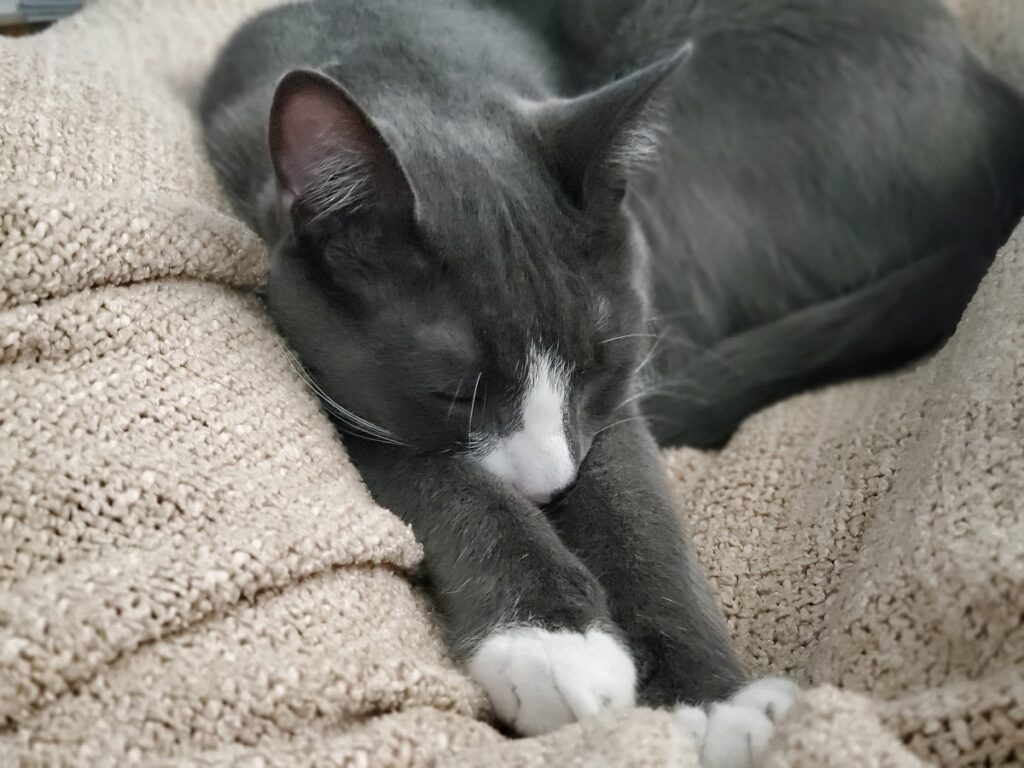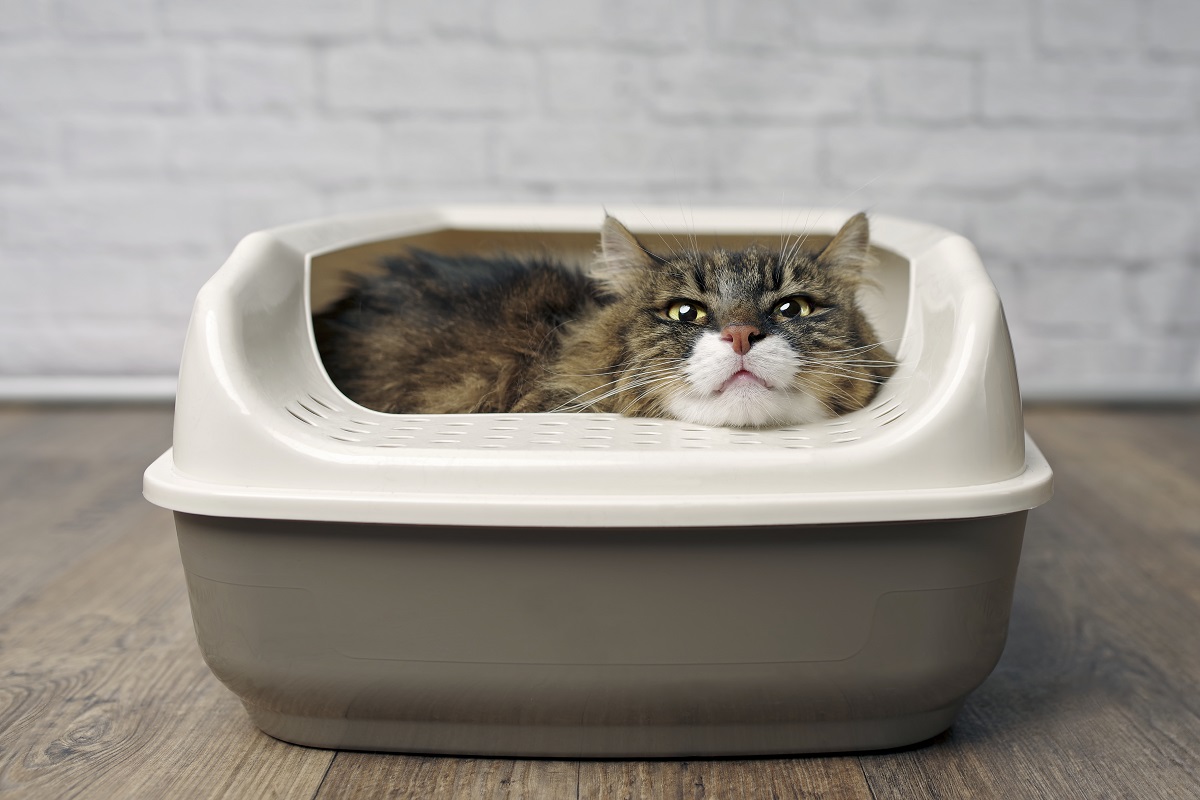It starts off a little odd. You catch your cat curled up in the litter box, eyes half-closed and purring like they are lounging in a sunny windowsill. At first, you think maybe they were just cleaning up after business and got distracted. But then it happens again. And again. Suddenly, you are googling things like “cat sleeping in litter box” and wondering if you need a cat therapist.
The truth is, sleeping in the litter box is not normal behavior for a healthy, happy cat. It is almost always a sign that something is off, whether it is physical, emotional, or environmental. Cats do not pick their toilet as a preferred sleeping space unless they feel like it is their only option.
Let’s explore why this happens, what your cat might be trying to tell you, and how to help them return to more sanitary snoozing spots.
It Might Be a Sign of Illness
One of the most common reasons cats sleep in the litter box is because they are not feeling well. Cats with urinary tract infections, kidney disease, or gastrointestinal issues may spend more time in or near the litter box because they are uncomfortable or in pain. If they are straining to urinate or experiencing frequent urges, they may not want to walk far from the spot they associate with relief.
In some cases, a cat will curl up in the litter box simply because they are exhausted from the stress of their symptoms. If you notice your cat visiting the box more often, trying to go without success, or making vocal sounds while eliminating, call your vet right away. These can be signs of a medical emergency, especially in male cats.
Stress Can Trigger Strange Behavior
Cats are sensitive creatures. A sudden change in the home, like a move, a new baby, or a loud construction project next door, can throw their world into chaos. When they feel overwhelmed, they may seek comfort in small, enclosed spaces where they feel secure. Unfortunately, the litter box often fits that bill.
For some cats, the litter box becomes a safe haven. It smells like them, it is quiet, and no one bothers them there. Sleeping in the litter box due to stress is more common in shelter cats, newly adopted kittens, or those adjusting to a big change.
If your cat is hiding out in the litter box due to anxiety, consider adding more cozy hiding spots around your home. Cat caves, covered beds, or even cardboard boxes can give them a sense of safety without the added fragrance of used litter.
Territorial Behavior Can Play a Role
In multi-cat households, litter box politics are real. If one cat suddenly starts sleeping in the box, they may be trying to guard it from other cats. This usually happens when there is competition for resources or when one cat is feeling insecure in the social hierarchy.
In some cases, a bullied or submissive cat may retreat to the litter box because it is the only space where they are not being chased or harassed. That is not an ideal solution for anyone involved.
Related read: Why Your Kitten Sleeps With Their Tongue Out.
Make sure you are following the golden rule of litter box distribution: one box per cat, plus one extra. Spread them out across your home so no one has to compete for bathroom access. More options mean less drama.
The Environment Might Not Be Meeting Their Needs
Cats are picky, and if their living environment is not quite right, they will find ways to let you know. Sleeping in the litter box can be a sign your cat does not feel they have a proper space to rest, hide, or feel safe.
This is especially common in new kittens or recently adopted adult cats who are still adjusting. If their new environment feels too open, too loud, or too unfamiliar, the litter box might feel like the only private spot available.
Make sure your cat has a quiet place where they can nap undisturbed. Soft bedding, dim lighting, and a bit of elevation can go a long way. High shelves, hidey-holes, or soft blankets in tucked-away corners are all great alternatives.
Kittens May Just Be Confused
If you have a very young kitten who is sleeping in the litter box, it might just be a case of mistaken identity. Kittens are still learning the difference between sleeping spots and potty spots, especially if they were recently weaned or separated from their mother.
In this case, the solution is usually simple. Offer more cozy bedding options and gently move them if you catch them snoozing in the litter box. Keep the box clean so it smells like a place for business, not bedtime.
Most kittens grow out of this phase quickly once they settle into their routine.
When to See a Vet
If your adult cat suddenly starts sleeping in the litter box and shows any other unusual symptoms, do not wait. Watch for:
- Straining or frequent attempts to urinate
- Vomiting or diarrhea
- Lethargy or disinterest in food
- Swollen abdomen
- Excessive grooming or licking of their rear end
These signs point to possible medical issues, some of which can become dangerous fast. It is better to rule out health problems first before assuming it is a behavioral quirk.

Dear Joey, Yesterday, I discovered a new fun spot for my naps – the litter box! I know, sounds wild, right? But hear me out. It’s like a tiny sandbox all to myself! Cozy, private, and with a built-in restroom, talk about convenience! I even found some peculiar buried treasures in there. If you ever try it out, just remember to steer clear of the ‘clumps’. Trust me on that one. #LifeLessons #BuriedTreasure #DirtyKitty #WatchOutForTheClumps
Winston
How to Help Your Cat Move Out of the Box
The good news is that most litter box snoozing is temporary and fixable. Once you identify the root cause, you can usually make a few changes that encourage better behavior.
- Visit the vet to rule out medical concerns
- Create multiple safe, cozy sleeping spots around your home
- Offer hiding spaces for anxious cats
- Add more litter boxes if you have a multi-cat household
- Avoid punishing or scolding your cat, which can increase stress
- Be patient and consistent as your cat adjusts
Cats are creatures of habit, and with a little effort, you can help them break this unusual one.
Final Thoughts: Every Cat Has a Reason
Your cat is not being weird for the sake of weirdness. If they are sleeping in the litter box, they are trying to tell you something. Whether it is discomfort, anxiety, or just a confused kitten brain, your job is to listen.
The litter box might not seem like a conversation starter, but in the world of feline behavior, it is a billboard in neon letters. Pay attention to what your cat is showing you. A clean, comfy bed and a little reassurance may be all they need to return to more standard napping locations.
And if all else fails, you can always tell them the litter box is reserved for business meetings only.
Sources:
Why Is My Cat Sleeping in the Litter Box? https://www.petmd.com/cat/behavior/why-does-my-cat-sleep-litter-box
Litter Box Behavior Problems in Cats https://vcahospitals.com/know-your-pet/litter-box-behavior-problems-in-cats
Cat Anxiety and Stress Signs https://www.aspca.org/pet-care/cat-care/common-cat-behavior-issues
Kitten Behavior and Development https://www.humanesociety.org/resources/caring-your-kitten
Recent Posts
Explore why cats sleep so much, including the evolutionary reasons and the health benefits they derive from their extensive sleep patterns.
Explore the causes of cat dandruff, its implications, and effective ways to deal with it so your feline friend remains happy and healthy.


